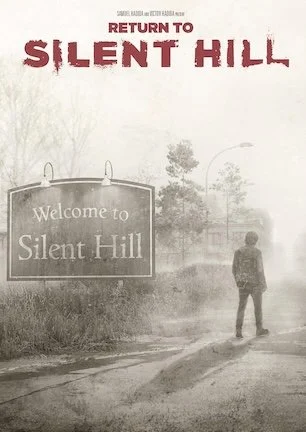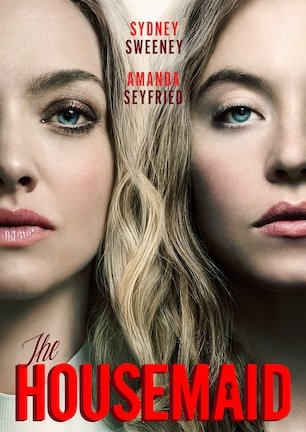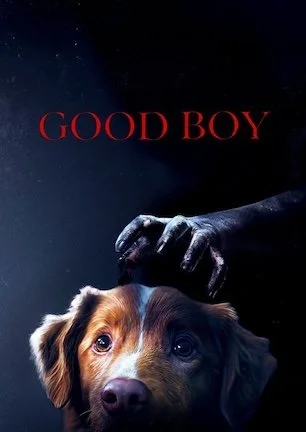Studio: Netflix
Director: Dan Gilroy
Writer: Dan Gilroy
Producer: Jennifer Fox
Stars: Jake Gyllenhaal, Rene Russo, Toni Collette, Zawe Ashton, Tom Sturridge, Natalia Dyer, Daveed Diggs, Billy Magnussen, John Malkovich
Review Score:
Summary:
Mysterious paintings recovered from the home of a dead recluse curse a critic as well as agents and curators in L.A.’s art world.
Review:
Writer/director Dan Gilroy’s 2014 thriller “Nightcrawler” is such a spectacular specimen of under-the-skin eeriness, I felt daunted by the prospect of reviewing it. I wasn’t positive I could put the movie’s macabre mood, slow boil intensity, or sharp style into the articulate terms they deserved. “Nightcrawler’s” unique exercise in atmospheric storytelling left me feeling it best to let other critics carry the burden of confining it within words.
It’s more challenging to figure out exactly what impression Gilroy’s 2019 thriller “Velvet Buzzsaw” makes. And yet curiously, it doesn’t similarly tie my tongue.
That’s partly because, like the subject matter Gilroy skewers, there can’t possibly be any “right” or “wrong” takes regarding the work. Sometimes profound, sometimes confounding, sometimes inspired, sometimes insipid, “Velvet Buzzsaw” can’t be caged by criticism. Or perhaps its dissociative identity disorder indicates the creator couldn’t care less what anyone thinks.
“Velvet Buzzsaw” is predominantly a dramatic thriller, at least I think so, albeit one with an impishly skewed sense of humor. Not incorrectly, other sources qualify their descriptions with “comedic” or “satirical.” Marco Beltrami and Buck Sanders’ mildly mischievous score certainly sets a stage for dark quirkiness, although it still took me over half of the runtime before I finally accepted that the movie might be telling a joke rather than being the butt of one.
Partially as a formality, I’ll recap relevant pips from the plot. It should still be understood that story seems secondary to a primary intent to parody.
Jake Gyllenhaal plays bisexual art critic Morf Vandewalt. If that name sounds peculiar, note that supporting characters go by Rhodora, Vetril, Damrish, and other assemblies of vowels and consonants that Microsoft Word underlines in red. “Velvet Buzzsaw” isn’t even off the page yet and it already finds a way to preach against pretension.
I only mention Morf’s sexual orientation because Gyllenhaal hammily overplays him like an effeminate pastiche. I’m not sure if Gyllenhaal’s portrayal is an insensitively insulting caricature or a bitingly bizarre send-up of stereotypes. That’s a confusing quality of “Velvet Buzzsaw” as a whole. Either way, it’s Gyllenhaal doing a bit in much the same way his sore thumb stuck out in “Okja” (review here).
Rene Russo also plays an archetype as an unrepentantly cutthroat art gallery owner, but better levels the seesaw between wicked assertiveness and approachable personality. Her collected yin tempers Gyllenhaal’s scattered yang just as it did in their previous collaboration with director Dan Gilroy.
Gyllenhaal’s Morf and Russo’s Rhodora are two of the people in orbit around a mysterious dead man’s collection of cursed paintings. Backbiting, backstabbing, condescension, and posturing are common in their fashionably weird world where struggling agents, fleeting fame artists, and conniving curators scheme with and against one another. As is the case whenever word of a scorching new talent consumes the outsider art scene, everyone eagerly competes for a piece of the dead man’s strangely spellbinding pie. Figuratively, they’re willing to die over the seemingly supernatural art. Literally, that’s exactly what happens.
Vetril Dease, the dead mystery man, gets a hand-wave backstory about suspicious family deaths, being institutionalized in an asylum where doctors experimented on inmates, and other familiar bits that’ll have horror fans circling index fingers in “yeah, yeah” motions. One spooky sequence sees a random cut to a creepy doll that opens its eyes for no real reason. Then there are several jump scare misdirects including, I kid you not, the dusty chestnut of a cat jumping out for a “gotcha!”
“Nightcrawler” proves Dan Gilroy can deliver terror as a texture. Here, the filmmaker steers instead down an avenue of uncharacteristically tangible tropes. Gilroy possesses a mind that knows how on-the-nose certain cinema clichés are. So the question becomes, does he mean to smartly mock horror like he mocks art star egos, or cavalierly employ clichés in the oblivious interests of mediocre entertainment?
That’s the conundrum “Velvet Buzzsaw” presents. Gilroy and company seem to be subtly having irreverent fun playing make-believe, but at whose expense? If you’re not smirking snootily along with the movie, you might be among those being laughed at. That certainly applies to art aficionados, portrayed as people in high ankle slacks sipping rosé from champagne flutes whose pork pie hats won’t fit when they cram their heads up their own asses. But it also applies to anyone who expects a movie more sinisterly sizzling than meanderingly mean.
Purely as a narrative, “Velvet Buzzsaw” possesses the problem of too many characters it either doesn’t need or whose purposes are so cursory, their inclusions could be cut considerably. Unnecessarily overstuffed content suggests Gilroy might have been better able to make his point in 90 minutes instead of 110. Then again, since I’m not entirely sure what the movie’s point is, I shouldn’t be one to judge.
What does “Velvet Buzzsaw” ultimately have to say? Maybe its unclear intentions are part of its uncertain point. Perhaps the movie is such an ouroboros of meta commentary on artistic culture that it winkingly represents precisely the kind of pompous pieces and delusional gawkers it lampoons. That might therefore qualify “Velvet Buzzsaw” as Dan Gilroy’s deliciously devious masterpiece: a self-aware study in subversion so nattily stylized, it simultaneously champions and criticizes itself as ambiguous art.
From a more practical perspective, “Velvet Buzzsaw” is a vain vagary inviting, I’d even say daring, individual viewers to apply their own interpretations of value. Everyone will divine his/her own meaning out of the experience.
The art world metaphor applies no matter what. The flash of notable names in a boutique Netflix piece from an evolving auteur makes it the sort of thing chin-stroking film festival programmers lose their minds over. Those afraid to admit “I don’t get it” among philosophical peers may invent imaginary substance to put the movie on a pedestal it doesn’t rightfully earn. Or maybe “Velvet Buzzsaw” is merely a middling movie that won’t inspire much lasting buzz at all. How appropriate of a period would that put on its statement about overinflated art?
Review Score: 50






While the 110-minute runtime could use a trim to maintain more energy, “Redux Redux” is an easy recommend for anyone who enjoys low-key sci-fi.